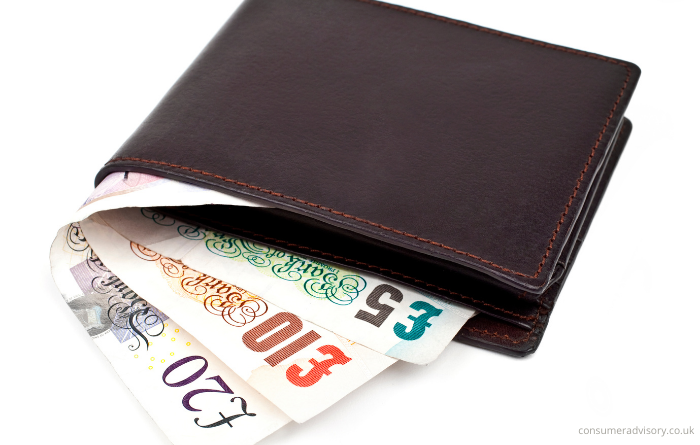
Cash in hand work is a common way of working in the UK, especially for temporary, short term work. It’s also a legal way of working, despite the myths. However, there are some legal implications that you need to be aware of when you’re working cash in hand, to ensure that you don’t break any rules.
In this article, we’ll tell you everything you need to know about working cash in hand, or paying your employees in this way. We’ll cover the legalities surrounding this type of work, as well as where you can find cash in hand jobs near you.
As the name suggests, cash in hand work means that you are paid for the work you’ve completed in cash. This means that you aren’t paid through the PAYE system and the money is not transferred to your bank account – you’re simply given cash for the work that you have done.
There are benefits of cash in hand work for both the employer and the employee. For the employer, paying cash could be more convenient if the business primarily takes cash from its customers. Paying its employees in cash could mean that there is less cash to take to the bank, reducing the amount of effort required.
Many workers are happy to be paid in cash as they get their hands on the money that they have earned right away, without having to go to a cash machine to withdraw it. Being paid in cash for each shift also means that you don’t have to wait for the end of the month to receive your wages, so it can help workers to manage their money.
However, paying cash in hand can also be a way for businesses to avoid their responsibilities as an employer, including holiday pay, sick pay and workplace pensions. Some employees may also use this as a way to avoid paying tax and remain under the radar.
Many people believe that it is against the law to work cash in hand. However, this is not actually the case.
This system of payment is legal, even if many people assume that cash in hand work is illegal. This also means that you aren’t required to pay any tax on the money you make from working in this way, unless you are earning more than £1,000 over a 12-month period.
If you are paid cash in hand, the person who pays you should let you know how much income tax has been deducted from your pay. This is usually done by providing you with a payslip that explains your salary and deductions.
Alternatively, you may accept cash in hand payments if you are working on a self-employed basis. If this is the case, you will be responsible for reporting your earnings to HMRC through the self-assessment process and paying any income tax and National Insurance contributions that you are liable for.
Cash in hand work only becomes illegal if the income is not declared to HMRC, and tax and National Insurance are not paid.

Whether or not you need to declare your cash in hand work will depend on whether you are an employee or self-employed.
If you are working as an employee, your employer should be making income tax and National Insurance deductions before you are paid your wages. They should provide you with a payslip to explain these deductions. If this is the case, you do not need to declare your cash in hand payments to HMRC as your employer is already doing this on your behalf.
If you are working on a self-employed basis and accepting cash in hand payments for this work, you will need to declare your earnings through the self-assessment process. This means completing an annual tax return to inform HMRC of your earnings.
How you will pay tax on your cash in hand earnings will depend on the basis in which you are working.
If you are an employee, your employer will deduct your income tax and National Insurance contributions from your wages before you are paid.
However, if you are self-employed and accepting cash payments, you will need to complete an annual self-assessment tax return as a sole trader. You will then be told how much income tax and National Insurance you are required to pay for the year, which you will pay directly to HMRC.
If you are looking for cash in hand work, there are a number of ways that you can go about finding this type of employment.
As well as searching the internet and newspapers, you could also try local shops or businesses that may be looking to employ an individual to help with their cash flow. Job boards such as Indeed and Monster may also have cash in hand jobs available for you to apply for.
Alternatively, try looking on social media. For example, Facebook has a dedicated jobs section where you can browse jobs in your local area and even apply through Facebook.

Although cash in hand work is legal, it’s not necessarily the best way to go about earning an income. For example, there are no guarantees of earnings when working this way, whereas employers will usually pay their employees for the hours that they have worked.
Also, if you are working cash in hand, you may not have the option to work for a specific employer for any length of time. This means that there is no chance to build up experience or your CV with one company, which could limit future job opportunities.
It is also worth mentioning that if you are working as an employee on a part-time basis and accepting cash in hand payments for this work, HMRC may regard you as a fully-fledged employee of the company. This means that they may expect you to be paid any entitlements or benefits that your job role would usually include.
Cash in hand jobs are advertised jobs that you can apply for and be offered payment for in cash. These jobs are usually part-time, flexible or casual jobs. For example, you might see cash in hand opportunities advertised as bar work, babysitting or manual labour work.
With cash in hand work, you will usually be paid for your work at the end of every shift. This means that you will generally receive money every time you work, rather than waiting to be paid at the end of the month.
As these types of job are not guaranteed, there is usually no set rate of pay and you can expect to be paid per hour. You will need to negotiate an hourly rate with your employer before starting work, as well as working out what you will be paid for any overtime that you work.
Most cash in hand jobs will require self-employed status for tax purposes, meaning that the employer is not responsible for paying any tax or National Insurance contributions on your behalf. This means that the employer will not have to provide you with a payslip, P60 or provide HMRC with information about your income.

If you are self-employed and accepting cash in hand payments for work that you do, you must ensure that you comply with your tax and National Insurance obligations. It is the responsibility of the employer to deduct any appropriate taxes from your income and pass this information onto HMRC.
It is up to you as a self-employed individual to keep track of your earnings and complete an annual tax return as a sole trader.
If you are caught working cash in hand without being registered as self-employed, HMRC may require the company that you work for to pay any income tax and National Insurance contributions that are owed. They may also investigate this further by looking into whether the employer should be paying PAYE on your earnings.
If it is determined that you have been working on a self-employed basis and should be registered as a sole trader for tax purposes, you may be required to pay any unpaid income tax and National Insurance contributions. You could also be fined by HMRC for late payment of taxes, or even charged with tax avoidance.
Many casual jobs in the UK involve cash in hand work. Whilst it is a common misconception that this type of work is illegal, it is important that you are aware of the laws surrounding working cash in hand, to avoid being accused of tax avoidance. If you are an employee, your employer should be deducting income tax and National Insurance from your wages. Alternatively, if you are working on a self-employed basis, you will need to complete an annual self-assessment tax return to declare your earnings.
Copyright © 2025 Consumer Advisory. All rights reserved.